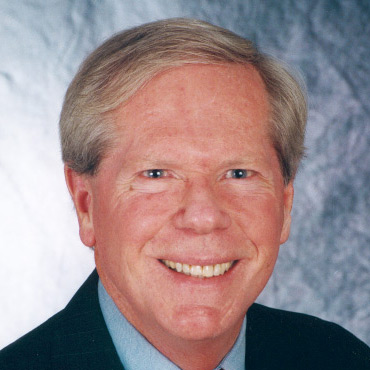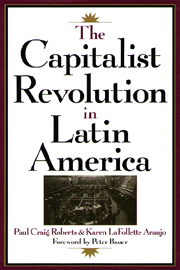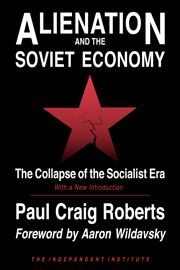Does government have an optimum size? Yes, declare economists Richard W. Rahn, Harrison W. Fox, and Lynn H. Fox in a recent study for the Vernon K. Kriebel Foundation. Looking at data for 57 countries over a 43-year period and citing a number of other studies, the economists conclude that in the U.S. today, government spending as a percentage of gross domestic product is much too large to maximize economic growth.
There are two reasons why. The first is that government uses resources less productively and efficiently than the private sector. With about one dollar in three passing through government hands, the economy losses a lot of juice. The second reason is that fewer resources are brought to market because of the tax and regulatory burden that extracts such a large share of GDP from producers.
Rahn, Fox, and Fox find that a country pays a stiff premium in terms of reduced economic growth once government expenditure exceeds 10% to 15% of GDP. With total government expenditures at about 32% of GDP today, a substantial reduction in government’s claims is required for the economy to reach its growth potential.
Some will demur, arguing that the study’s conclusion implies that the government is far too large. However, by historical standards, a government’s claim to 15% of GDP is high. A decade after the end of World War I, in the U.S., total government spending (state, local, and federal) was less than 10% of the gross national product. Of this amount, only about 2.5% was federal spending—about the same as 1910.
Forked Tongue
The real issue is: Why trust the government with even 10% of GDP? This question should not startle anyone. Even democratic governments fail to trust the people in whose names they govern and lie about the most fundamental matters. For example, it has recently come to light from the testimony of former Soviet-bloc intelligence officials and the release of formerly classified records that the U.S. government has lied since the days of President Eisenhower about the grim fate of our POWs in North Korea and Vietnam. No one would buy a used care from a politician; it makes even less sense to trust our health, education, and retirement to a government that won’t come clean about the fate of the solders whom is sends off to war.
European governments trust their peoples even less and thereby warrant less trust themselves. They have been caught stealing the sovereignty of their nations by vesting the power of law in the European Commission, which consists of unelected bureaucrats. The political union of European nations is being achieved by deception. Political leaders claimed that the aim was a common market—an economic union—and “there is no question of any erosion of essential national sovereignty,” to quote the British government’s official White Paper.
Continental Drift
Sir James Goldsmith has exploded this fiction. In recent speeches he quotes the architects of the European Union, showing that their explicit aim from the beginning was political fusion. Jean Monnet, the movement’s patron saint, set out the plan. European nations could be turned into one superstate without the various nationalities understanding what was happening. This result would be accomplished by successive steps described as having only economic purpose. These steps would lead to a single currency and, thereby, to a single economic policy. As Monnet put it: “This fusion would compel nations to fuse their sovereignty into that of a single European state.”
Goldsmith quotes former French Foreign Minister Claude Cheysson saying that the European Union achieved through the Maastricht agreement could not have been achieved through democratic means. He cites former British Prime Minister Sir Edward Heath’s admission, 17 years after he had assured the British people there would be no sacrifice of sovereignty, that the real intention all along was the political union of Europe. According to Goldsmith, former French Prime Minister Raymond Barre was perplexed at the idea that the French people should be consulted: “I never have understood why public opinion about European ideas should be taken into account.”
No one would trust 10% of his money to a broker, investment adviser, or mutual-fund manager who had a history of deceiving his clients. Why trust even larger sums to governments that lie about something as basic as national sovereignty? Even the 10% to 15% of GDP that Rahn, Fox, and Fox are content to leave in government’s hands is more than government can be trusted with.










